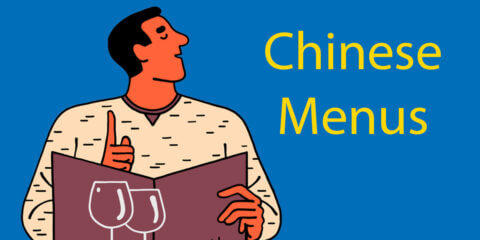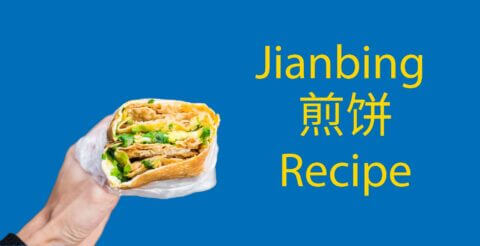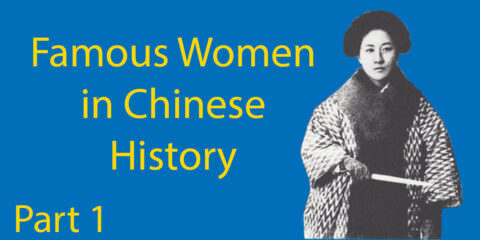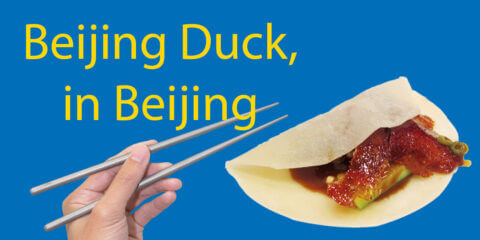Chinese Cooking Shows || The Best (+ Tastiest) Way to Learn Cooking Related Vocabulary
If you walk into your kitchen right now how many of the items in there do you think you can name in Chinese?

Or how about describing how you made your lunch to a Chinese friend?
If, like me, you got stuck at something along the lines of…
“I boiled some water in a pan”
The shows below will get you feeling confident in your cooking vocab in no time!
Or alternatively, if you’re at a level where you can almost follow along with every step in your recipe for Buddha Jumps Over the Wall (a soup commonly served at state banquets and requiring two full days to prepare with countless rare ingredients) the more advanced shows in this list can probably help fill in some final gaps!
If you want to get the most out of watching the shows you can take a look at this guide for how to learn Chinese through watching TV shows.
Now without further ado, let’s get into the shows!
In order of increasing difficulty:
Chinese Cooking Shows || Mandarin Corner Egg Fried Rice
Chinese Cooking Shows || 奶奶最懂得 Granny Knows Best
Chinese Cooking Shows || Flavorful Origins
BONUS || Useful Vocab
Chinese Cooking Shows || FAQs
Mandarin Corner Egg Fried Rice
The best way to ease yourself into cooking content and to be able to start talking about simple recipes yourself, is through watching some Mandarin Corner videos related to cooking.
I really recommend starting with the video titled: Learn Cooking AND Chinese – Chinese Egg Fried Rice.
You get introduced to words for all basic cooking concepts, like chopping, dicing, frying, beating eggs etc. as well as words for vital kitchen implements such as a chopping board.
As a bonus, after watching the video you will have learned a delicious new recipe for egg fried rice!
Mandarin corner also has a 44 minute video where the host takes a walk through a Chinese wet market (vegetarians beware – it is a real life Chinese wet market), which gives you an explosion of new vocab!
I hope the channel decides to add more cooking content in the future, because it is a super valuable resource for intermediate learners; English, pinyin and character subtitles are all provided on each video, and the host makes sure to speak clearly, but at a normal speed.
The people she interacts with at the wet market don’t follow these rules, and so provide a nice challenge within the video!
奶奶最懂得 Granny Knows Best
That’s a title I think that most of us can definitely agree with!
Grandma’s are the best cooks around hands down.
This 8 episode series follows along with Jamie Bilbow, a British chef (and fluent Mandarin speaker), as he travels to 8 different provinces of China, stopping in each one to learn from the masters: local Grannies.
The show is a perfect resource for language learners interested in expanding their vocabulary related to cooking, as each province serves up its own delicacies with many different ingredients and methods of preparation.
It’s also very inspiring to see the level of Chinese fluency that chef Jamie Bilbow has reached, he converses with all the local Grannies with ease!
Flavorful Origins

Oh boy, this is one for the advanced learners among us (at least if you want to forgo the English subtitles).
If you want to learn how to describe the textures and aromas of foods in Chinese, or talk about the changes at the molecular level caused by this method of food preparation versus that, this is the show for you!
Each episode is (thankfully) only 10 minutes long, which limits the amount of new vocab at least a bit.
Since the show is available on Netflix I highly recommend checking out the guide below to learning Chinese by watching Netflix.
There are currently 4 seasons of the show, with 50 episodes in total.
Each season takes place in a different province of China, and the producers of the show seem to have set themselves the mission of picking local delicacies that even Chinese people from other provinces have never heard of, never mind us language learners!
BONUS || Check out our guide to the 8 great Chinese cuisines here.
In keeping with the theme for advanced learners, the show mixes narration with interviews with locals – often with heavy local accents – perfect for the advanced learner to push a little past their comfort zone!
BONUS || Useful Vocab
Before leaving, it’d be wrong of us not to teach you a few new words!
We’re a language school after all.
Here are some handy words you can use when cooking in Chinese.
| English | Chinese | Pinyin |
|---|---|---|
| Bake | 烘 | hōng |
| Boil | 煮 | zhǔ |
| Chop | 斩 | zhǎn |
| Cut | 切 | qiè |
| Deep Fry | 炸 | zhà |
| “Double Boil” | 炖 | dùn |
| Dressing | 拌 | bàn |
| Marinate | 腌 | yān |
| Mince | 剁碎 | duò suì |
| Pan Fry | 煎 | jiān |
| Peel | 剥 | bō |
| Roast | 烤 | kǎo |
| Slice | 切片 | qiē piàn |
| Smoke | 熏 | xūn |
| Steam | 蒸 | zhēng |
| Stir Fry | 炒 | chǎo |
Now let’s take a look at those all important veggies in Chinese.
| English | Chinese | Pinyin |
|---|---|---|
| Asparagus | 芦笋 | lú sǔn |
| Broccoli | 西兰花 | xī lán huā |
| Brussel Sprout | 小洋白菜 | xiǎo yáng bái cài |
| Carrot | 胡萝卜 | hú luó bo |
| Celery | 芹菜 | qín cài |
| Cucumber | 黄瓜 | huáng guā |
| Green Bell Pepper | 青椒 | qīng jiāo |
| Green Onion | (洋)葱 | (yáng) cōng |
| Lettuce | 生菜 | shēng cài |
| Potato | 土豆 | tǔ dòu |
| Mushroom | 蘑菇 | mó gū |
| Peas | 豌豆 | wān dòu |
| Spinach | 菠菜 | bō cài |
| Sweetcorn | 甜玉米 | tián yù mǐ |
| Sweet Potato | 甘薯 | gān shǔ |
| Tomato | 番茄 | fān qié |
And what about some of the most important fruits in Chinese.
| Fruit in English | Hanzi | Pinyin |
|---|---|---|
| Apple | 苹果 | píng guǒ |
| Apricot | 杏 | xìng |
| Avocado | 牛油果 | niú yóu guǒ |
| Banana | 香蕉 | xiāng jiāo |
| Blackberry | 黑莓 | hēi méi |
| Blackcurrant | 黑树莓 | hēi shù méi |
| Blueberry | 蓝莓 | lán méi |
| Cherry | 樱桃 | yīng táo |
| Coconut | 椰子 | yē zi |
| Cranberry | 蔓越莓 | màn yuè méi |
| Date | 枣 | zǎo |
| Dragonfruit | 火龙果 | huǒ lóng guǒ |
| Durian | 榴莲 | liú lián |
| Goji Berry | 枸杞 | gǒu qǐ |
| Grape | 葡萄 | pú táo |
| Grapefruit | 柚子 | yòu zi |
| Guava | 番石榴 | fān shí liu |
| Jackfruit | 菠萝蜜 | bō luó mì |
| Jujube | 枣 | zǎo |
| Kiwifruit | 猕猴桃 | mí hóu táo |
| Kumquat | 金橘 | jīn jú |
| Lemon | 柠檬 | níng méng |
| Lime | 酸橙 | suān chéng |
| Loquat | 枇杷 | pí pá |
| Longan | 龙眼 | lóng yǎn |
| Lychee | 荔枝 | lì zhī |
| Mango | 芒果 | máng guǒ |
| Mangosteen | 山竹 | shān zhú |
| Melon | 瓜 | guā |
| Cantaloupe | 哈密瓜 | hā mì guā |
| Watermelon | 西瓜 | xī guā |
| Mulberry | 桑葚 | sāng shèn |
| Nectarine | 油桃 | yóu táo |
| Orange | 橙 | chéng |
| Tangerine | 柑橘 | gān jú |
| Papaya | 番木瓜 | gān mù guā |
| Passion fruit | 百香果 | bǎi xiāng guǒ |
| Peach | 桃子 | táo zi |
| Pear | 梨 | lí |
| Persimmon | 柿子 | shì zi |
| Plantain | 芭蕉 | bā jiāo |
| Plum | 李子 | lǐ zǐ |
| Prune | 西梅 | xī méi |
| Pineapple | 菠萝 | bō luó |
| Pomegranate | 石榴 | shí liu |
| Raspberry | 树莓 | shù méi |
| Rambutan | 红毛丹 | hóng máo dān |
| Strawberry | 草莓 | cǎo méi |
If you know of any other good cooking shows that I missed please leave a comment and share it with all of us!
Until then, 加油! (and also don’t forget to 加油 to your wok, hehe I made a cooking joke) 🤩
Chinese Cooking Shows || FAQs
What’s the best cooking show to start learning cooking vocab in Mandarin?
Mandarin Corner’s Egg Fried Rice is amazing for learning all the basic cooking related vocab you could need!
I’m an advanced learner. Are there any cooking shows suitable for me?
Flavorful origins is a real challenge!
A mix of flowery narration and heavy local accents from the people being interviewed make this show perfect for learners at the advanced level.
Where can I learn more about different Chinese regional cuisines?
You can check out this post to learn more about the different cuisines in China.
Where can I learn more about cooking in Mandarin?
You can check out this post to get you started on cooking related words in Mandarin.
Want more from LTL?
If you wish to hear more from LTL Mandarin School why not join our mailing list?
We give plenty of handy information on learning Chinese, useful apps to learn the language and everything going on at our LTL schools.
Sign up below and become part of our ever-growing community.
BONUS | Learn Chinese with LTL in person. Our student community is growing by the week.

 Hi, my name is Ilaria! I am from Italy and I am a Student Advisor at LTL. Fancy coming to study with us in China? Drop me a message.
Hi, my name is Ilaria! I am from Italy and I am a Student Advisor at LTL. Fancy coming to study with us in China? Drop me a message.




